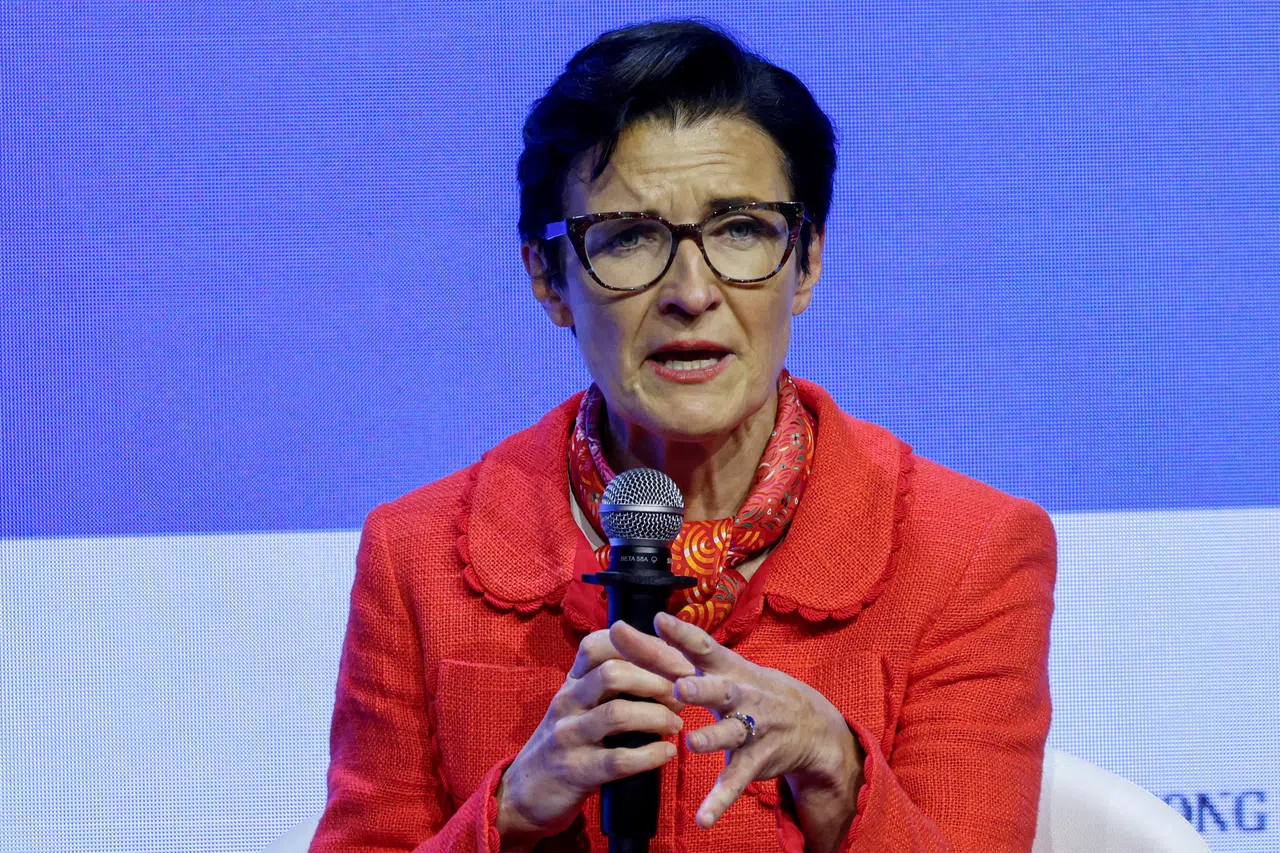Citigroup’s profit fell 9 per cent in the third quarter as it set aside more money to cover loans that may not be repaid, particularly on credit cards.
The third-largest US lender’s net income dropped to US$3.2 billion, or US$1.51 per share, compared with US$3.5 billion, or US$1.63 per share, a year earlier, it reported on Tuesday (Oct 15).
“In a pivotal year, this quarter contains multiple proof points that we are moving in the right direction and that our strategy is gaining traction,” CEO Jane Fraser said in a statement. Citi shares were last up 2 per cent in premarket trading after results.
Revenue rose 1 per cent to US$20.3 billion.
Citi’s dealmakers joined rivals at JPMorgan Chase and Wells Fargo in benefiting from a rebound in capital markets as corporate clients issued more debt and equity.
Investment banking was a bright spot for the second straight quarter, with revenue jumped 31 per cent to US$934 million. Wall Street executives are optimistic that the Federal Reserve’s interest-rate cut last month will pave the way for more deals and initial public offerings.
BT in your inbox
Start and end each day with the latest news stories and analyses delivered straight to your inbox.
Services revenue climbed 8 per cent to US$5 billion, fuelled by a 24 per cent surge in revenue for securities services to US$1.4 billion.
A stock-market rally at the end of the quarter propelled equities trading revenue up 32 per cent to US$1.2 billion, lifting overall markets revenue 1 per cent.
But bond trading revenue lagged, falling 6 per cent to US$3.6 billion.
In the US retail banking division, revenue climbed 3 per cent to US$5 billion, buoyed by 8 per cent growth in credit card revenue to US$2.7 billion.
Meanwhile, retail banking revenues fell 8 per cent, and in the retail services arm handling credit card partnerships, revenue slipped 1 per cent.
Citi’s total allowance for credit losses was about US$22.1 billion at the end of the third quarter, compared with US$20.2 billion a year earlier.
Its wealth management division, a key part of Fraser’s growth strategy, posted revenue growth of 9 per cent in the quarter to US$2 billion.
Fraser has sought to grow profits, simplify the company and fix its longstanding regulatory problems.
On Friday, Bank of America’s profit in the third quarter fell on the back of lower interest income. Earnings at rival JPMorgan Chase and Wells Fargo beat estimates last week, underpinned by strong consumer finances.
In 2020, the Office of the Comptroller of the Currency and the Federal Reserve fined Citi US$400 million and ordered the bank to fix persistent risk management and data governance failures.
Total operating expenses declined 2 per cent in the third quarter.
The regulators again fined Citi in July for failing to make enough headway on those problems. It got some relief when the Federal Reserve terminated a 2013 enforcement action on the bank’s anti-money laundering programmes earlier this month.
Citi is giving special attention to data, an area “where we got the feedback that we weren’t moving fast enough”, chief financial officer Mark Mason told investors in September.
It has tasked technology head Tim Ryan to work alongside chief operating officer Anand Selva in fixing the bank’s longstanding data management issues. The bank has also added a section to quarterly filings to address its work on the multiple regulatory penalties, known as consent orders.
Citi shares have gained 28 per cent so far this year, while an index tracking large-cap banks is up 25 per cent and the S&P 500 index has climbed 23 per cent over the same period. REUTERS




